1. National Scholarship Databases
- Your Home Country’s Government Website : Many governments offer scholarships specifically for students wishing to study abroad. Check your government’s official education or foreign affairs website for relevant opportunities. These sites often have dedicated sections for international study grants.
- Destination Country’s Government or University Websites : Many countries and universities also provide scholarships for international students. Research the education ministry or specific universities in your destination country for potential funding opportunities.
2. Global Scholarship Databases
- Scholarship Portal : A comprehensive database that allows you to search for scholarships by country, field of study, and degree level.
- DAAD : The German Academic Exchange Service offers information on a wide range of funding opportunities for students looking to study in Germany and beyond.
- Education USA : Supported by the U.S. Department of State, this resource provides information on scholarships and grants available for studying in the United States.
3. Field-Specific Grants
- Research Councils : For students in fields like science, technology, and engineering, national research councils often offer grants for studying and conducting research abroad. Look up research councils or funding bodies in your home country or destination country.
- Professional Associations : Many professional organizations offer scholarships and grants tailored to students within their specific fields. Search for associations related to neuroscience, neurocomputation, or other relevant disciplines.
4. University-Specific Grants
- University Financial Aid Offices : Many universities have their own scholarships and grants specifically for international students. When applying to Neurasmus, be sure to reach out to the local partner universities before, to their financial aid offices to inquire about available funding.
5. External Scholarship Providers
- Fulbright Program : A prestigious scholarship program offering opportunities for international exchange in a wide range of countries.
- Erasmus+ : While primarily for EU students, Erasmus+ offers scholarships for studying, training, and internships abroad. Explore this option if you’re eligible.
6. External Scholarship Providers
- Crowdfunding Platforms : Some students successfully use crowdfunding platforms like GoFundMe or Kickstarter to raise funds for their studies. These platforms allow you to share your story and garner support from a wide audience.
- Education Loans : Many banks offer loans specifically designed for students studying abroad, often with favorable interest rates and repayment terms. Research education loan options in your home country.
7. Tips for Researching and Applying
- Start Early : Begin your search for scholarships as soon as possible. Application deadlines can be months before the start of your program.
- Apply to Multiple Scholarships : Increase your chances of receiving funding by applying to as many relevant scholarships as possible.
- Write a Compelling Application : Tailor your application essays and personal statements to each scholarship, clearly articulating why you are an excellent candidate.
- Track Deadlines : Keep a calendar or spreadsheet of all application deadlines to ensure you don’t miss out on opportunities.
Need Program Information or Documentation ?
While we can’t assist with researching or applying for grants, we can provide any necessary documentation and detailed information about the Neurasmus program to support your applications. If you need program-related documents or have specific questions, please reach out to us.

You want a program overview ?

